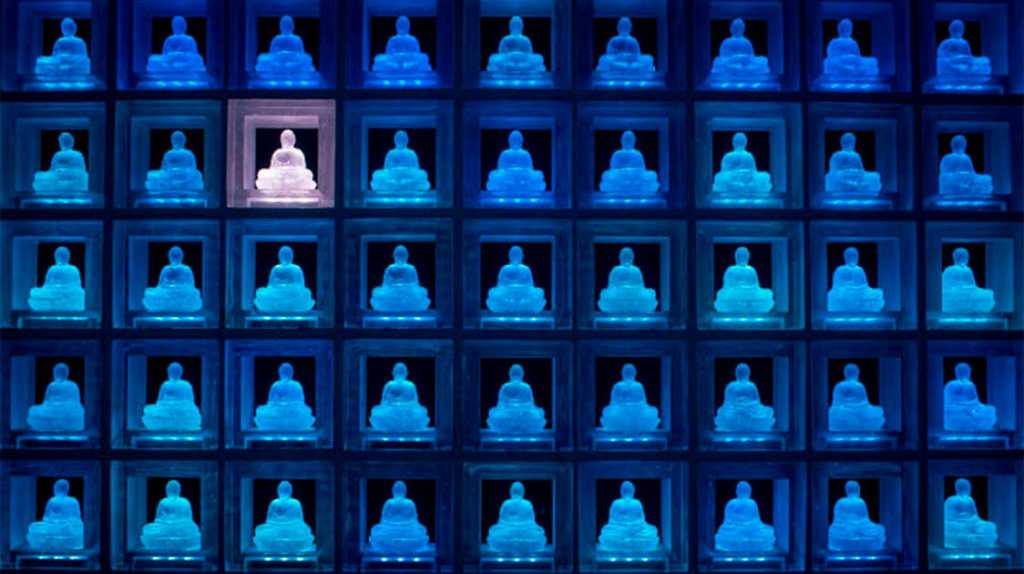Death is a notion that generates many different ideas and attitudes in different cultures. For instance, some cultures have very elaborate afterlives. In other cultures, descriptions of the afterlife are quite minimal. Modern technology has had a great influence on how we perceive and experience death. It is my belief that there are some major differences between death in a more traditional natural society and death in a modern technological society. Differences that determine how comfortable people are with dying.
In a traditional natural society, life is always springing forth from the grounded environment that surrounds the people who live there. Life differentiates out of the organic matter that fills such an environment. By the same token, life is constantly rotting away into oblivion. Life undifferentiates into elemental organic matter. Sometimes the undifferentiation occurs directly in the open external world in which it dwells. Sometimes it undifferentiates in a predator’s stomach. For humans living in such an environment, it is part of a natural flowing blendable continual cycle of life. In such an environment, the consciousness of a person is rarely so elevated that he feels totally detached from the process of death. His consciousness frequently exists at the state of preconsciousness, that is at a level of only partial differentiation from its surroundings. As a result, dying is usually not such a painful difficult process. Rather dying provides the secure ultimate grounding from which the person’s differentiated essence grew out of. But because the essence was only partially differentiated, the person is capable of first bonding with his living environment and then grounding in it and then melting into what is for him the ultimate grounding of death. It is going in reverse of the growing out of the grounding, the way it happened when the person was first born and then became partially differentiated within the first part of his life cycle. Because it mirrors to a certain extent the first part of the life cycle, death in a traditional natural society does not seem quite so frightening to the person who is experiencing it. It is when death seems to be an unknown entity that it seems so frightening.
For people in modern technological society, death does seem to be an unknown and mysterious entity, if only because it seems to follow a pathway that is very different from the beginning of the life cycle for these people. The reason is simple. People from this later time period have a consciousness that grows and grows as a result of the greater knowledge and experience he is capable of obtaining as a result of a constantly extending life cycle. The larger his consciousness grows, the more separated it becomes from its living environment, from its grounding, from its moorings. In death, rather than a person melting back into his organic grounding through his preconscious, the person from modern technological society has a long way to go from his heightened consciousness while alive to the unconsciousness of death and he experiences dying almost like falling off a cliff.
Modern humans have a lot of fear in thinking about death, in trying to prepare for death. Death does not come easily to people today. It seems almost unnatural. The attitude of fear leads people to use modern technology to try and extend the human life cycle as long as possible and thus avoid the inevitable of death. I guess that when the extension of the life cycle is accomplished with the extension of the quality of life that that is something most people would grab at. Of course, the more the life cycle extends today, the more consciousness becomes heightened and the farther the person has to fall psychologically in order to die. But far too often, the life cycle is extended without effectively dealing with the problem of the painful frailty that many an older person all too often appears to be experiencing in full consciousness. This is why many people write living wills in which they give explicit instructions as to when they want their caretakers to pull the plug.
I want to emphasize that in no way am I criticizing modern man’s desire to live as long as he can. I am just trying to show that the process of extending the life cycle has some complicated consequences relating to how people deal with the inevitable fact of death. Of course, there are some people today who are trying to separate people’s minds or consciousnesses from their bodies, so that the mind can continue to live forever after the body dies. Many such people almost seem to view the body as a burden which they actively want to separate from. To my way of thinking, such a detached mind, if the detachment could be pulled off, would experience itself as a free-floating entity totally bereft of grounding and floating in an experiential vacuum. Not the most pleasant situation to live in. Without sensory physical grounding, a person would experience the effects of extreme numbness and would find it a totally unpleasant experience.


























